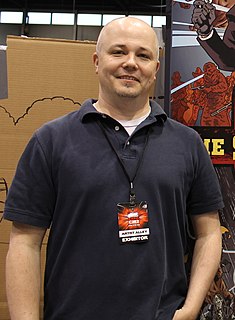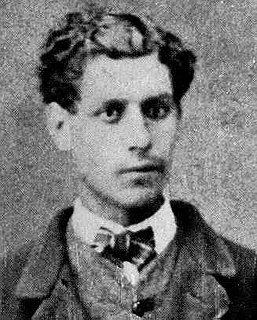A Quote by George Eliot
There is no despair so absolute as that which comes with the first moments of our first great sorrow, when we have not yet known what it is to have suffered and be healed, to have despaired and have recovered hope.
Related Quotes
Was it not most meet that a woman should first see the risen Saviour? She was first in the transgression; let her be first in the justification. In yon garden she was first to work our wo; let her in that other garden be the first to see Him who works our weal. She takes first the apple of that bitter tree which brings us all our sorrow; let her be the first to see the Mighty Gardener, who has planted a tree which brings forth fruit unto everlasting life.
From our sorrow we might seek out the sweetness and the good that is often associated with and peculiar to our challenge. We can seek out those memorable moments that are frequently hidden by the pain and agony. We can find peace in extending ourselves to others, using our own experiences to provide hope and comfort. And we can always remember with great solemnity and gratitude Him who suffered most to make it all right for us. And by so doing we can be strengthened to bear our burdens in peace. And then, the 'works of God' might be manifest.
There are moments that define a person's whole life. Moments in which everything they are and everything they may possibly become balance on a single decision. Life and death, hope and despair, victory and failure teeter precariously on the decision made at that moment. These are moments ungoverned by happenstance, untroubled by luck. These are the moments in which a person earns the right to live, or not.
It is abundantly evident that, however natural it may be for us to feel sorrow at the death of our relatives, that sorrow is an error and an evil, and we ought to overcome it. There is no need to sorrow for them, for they have passed into a far wider and happier life. If we sorrow for our own fancied separation from them, we are in the first place weeping over an illusion, for in truth they are not separated from us; and secondly, we are acting selfishly, because we are thinking more of our own apparent loss than of their great and real gain.
In India the mother is the center of the family and our highest ideal. She is to us the representative of God, as God is the mother of the universe. It was a female sage who first found the unity of God, and laid down this doctrine in one of the first hy mns of the Vedas. Our God is both personal and absolute, the absolute is male, the personal, female. And thus it comes that we now say: 'The first manifestation of God is the hand that rocks the cradle'.
Faith exists when absolute confidence in that which we cannot see combines with action that is in absolute conformity to the will of our Heavenly Father. Without all three--first, absolute confidence; second, action; and third, absolute conformity--without these three all we have is a counterfeit, a weak and watered-down faith.
There are those among you who, although young, have already suffered a full measure of grief and sorrow. My heart is filled with compassion and love for you. How dear you are to the Church. How beloved you are of your Heavenly Father. Though it may seem that you are alone, angels attend you. Though you may feel that no one can understand the depth of your despair, our Savior, Jesus Christ, understands. He suffered more than we can possibly imagine, and He did it for us; He did it for you. You are not alone.
That man is formed for social life is an observation which, upon our first inquiry, presents itself immediately to our view, and our reason approves that wise and generous principle which actuated the first founders of civil government, an institution which hat its origin in the weakness of individuals, and hath for its end the strength and security of all; and so long as the means of effecting this important end are thoroughly known and religiously attended to government is one of the richest blessings to mankind, and ought to be held in the highest veneration
I believe that all great art holds the power to dissolve things: time, distance, difference, injustice, alienation, despair. I believe that all great art holds the power to mend things: join, comfort, inspire hope in fellowship, reconcile us to our selves. Art is good for my soul precisely because it reminds me that we have souls in the first place.







































